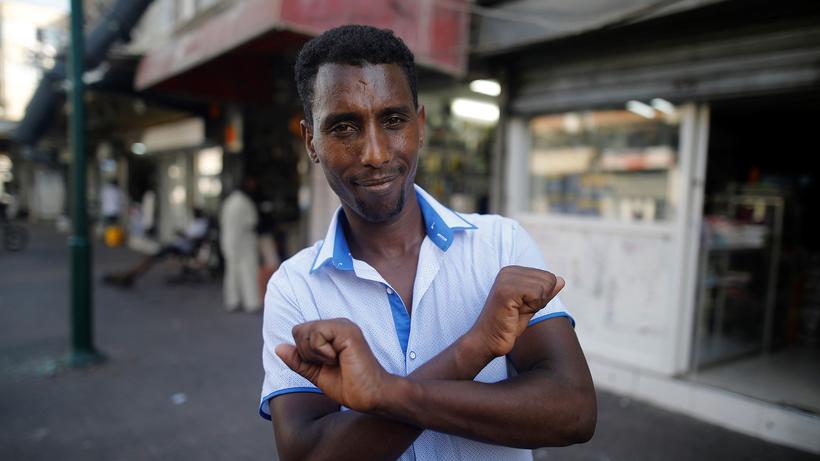The majority of Africans entered Israel illegally across the border with Egypt between 2010 and 2012, with more than 1,000 people entering the country each month . After Israel had built a fence to the neighboring country, the influx of refugees had fallen to virtually zero, said Netanyahu. Around 20,000 migrants from Africa have already been deported, according to the Prime Minister. Now, in a third phase of “intensified deportation,” Israel will deport the remaining “40,000 intruders without their consent.” This is possible thanks to an international agreement, Netanyahu said. According to media reports, it is an agreement with Rwanda and Uganda.
Controversial prisons for asylum seekers
The handling of refugees is controversial in Israel. In principle, the state can not simply deport asylum seekers, as it is bound by the Geneva Refugee Conventions. Many migrants live in poor neighborhoods in the south of Tel Aviv, with frequent tensions with Israeli residents. In addition to the border fence with Egypt, from 2013 the government also set up special prisons for asylum seekers. The facilities in Saharonim and Holot in the Negev desert are officially considered “open-air establishments”, but are so remote that it was barely possible to set foot.
If the deportation plan is implemented, Israel wants to close the Holot prison in the Negev desert within a few months. The Israeli government unanimously approved a bill to that effect, Israeli media reported. According to the Ministry of Public Security, the cost of Holot is 62 million euros annually. Eritreans and Sudanese detained in Holot are then allowed to choose between leaving for Rwanda and imprisonment in a regular Israeli prison.
The refugee agency UNHCR expressed “deep concern” over Israel’s plans and the safety of the deportees. “Asylum seekers and refugees from Eritrea and Sudan must agree to a deportation to African countries or expect imprisonment in Israel,” it said in a statement. “Israel is legally obliged to protect refugees and others seeking protection,” said Volker Türk, a senior representative of the UN refugee agency.
By the end of August, Israel’s Supreme Court had declared the unlimited detention of asylum-seekers unconstitutional. African asylum seekers are likely to be deported to third countries, but in the event of refusal they will be detained for a maximum of 60 days.
